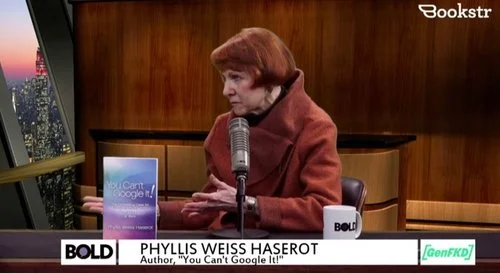Are We Experiencing a Seismic Shift in Higher Education and Work Aspirations for Gen Z and Non-traditional Students of any Generation?
/Part One
I came across some interesting statistics in a recent article in Entrepreneur.com magazine by Ryan Jenkins, co-founder of SyncLX.com, titled 8 Ways the Crisis Will Forever Change the Future Workforce. Actually, we were seeing some of the factors before COVID-19 struck us, but the crisis has certainly accelerated them. Here are a few notable survey results:
60% of Gen Z is open to entering the workforce without completing college.
Only 26% of Gen Z perceive education (or lack of) as a barrier to success.
41% of Gen Z respondents say they want to be entrepreneurs. 53% of Gen Z respondents prefer gig jobs and side hustles.
Note: It is likely these opinions were formed before the force of the Covid-19 crisis were felt, and the article did not describe the sample size. But the attraction to entrepreneurism and the doubts about the necessity of a traditional college degree had been gathering steam for several years.
Devaluing traditional college in favor of alternative “higher ed” and no college and entering careers sooner (as some likely star college athletes had done) were building as a significant trend for several reasons since the Great Recession of 2008 and its lasting financial and psychological impact:
An economy in need of restructuring as well as rebuilding
Lack of resources for four years of tuition and related expenses
Desire to quickly learn just what they need for the job
Expecting that employers will provide learning and development they need
More acceptance by employers of non-traditional backgrounds if employees come with a demonstrated willingness to learn
Other significant impacts and attitudes influencing young employees and students cited in the article:
Gen Z (defined by the survey as age 18-24) tend to view their employers as a community of support, wellness and education
Gen Z service workers have lost more work hours than other demographic age cohorts (29% put on leave) so they want multiple sources of income
Several studies have found it to be the loneliest, most anxious and stressed generation; 69% say they feel shy, and no one knows them well (68%). So clearly, they need more connection and empathy and emotionally intelligent leaders.
I think it’s important to note that members of Gen X are also extremely stressed, many with very demanding jobs way before the COVID-19 era, as well as family responsibilities for care of children and aging parents. But of all generations, Gen Xers typically have more experience with a variety of obstacles throughout their careers and poor economies and have become fairly resilient.
Gen Z is more global in outlook than other generations and will, even more than Millennials, expect and demand more diversity and inclusion from their employers’ and leaders’ actions.
So, what does this mean for colleges and multi-generational workplaces? Some answers in my next article.
Call to Action: I invite you to this vital conversation. Please comment on this article and share your views on how changes forced by COVID-19 help or exacerbate intergenerational relations at work.
© Phyllis Weiss Haserot, 2020


